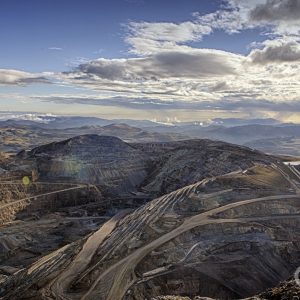The Stream, December 15: Business Leaders Call For Transparency On Climate Risks
The Global Rundown
Two prominent businessmen are asking companies around the world to give investors more information about climate risks. An initiative in China to reduce conflicts of interest over environmental enforcement is nearly complete. Oases continue to disappear in Morocco due to changing climate patterns, but local restoration efforts could help. Scientists have discovered 2-billion-year-old water in Canada that may provide insights into life on other planets. Farmers in Egypt are using hydroponics to reduce their water demand.
“A properly functioning market will price in the risks associated with climate change and reward firms that mitigate them. As its impact becomes more commonplace and public policy responses more active, climate change has become a material risk that isn’t properly disclosed.” –Michael Bloomberg, the former mayor of New York City, and Mark Carney, the governor of the Bank of England, calling on companies around the world to be more open about their exposure to risks from climate change. (Guardian)
In context: Learn how water scarcity is stranding billions of investor dollars.
By The Numbers
2/3 Proportion of Morocco’s oasis habitat that has disappeared over the past 100 years due to shifting temperature and rainfall patterns, as well as excessive groundwater pumping. Yale Environment 360
90 percent Reduction in the amount of water needed to grow lettuce hydroponically compared to traditional methods, according to farmers using the technique in Egypt. Scarce and polluted water supplies, coupled with urban development, could push more farmers to take up hydroponics. Reuters
Science, Studies, And Reports
Scientists say they have discovered the oldest water reserves in the world, buried deep underground in Canada and dating back 2 billion years. Though highly saline and unfit for drinking, the water could reveal more about subterranean life forms and hint at what might exist on other planets. ABC
On The Radar
China is nearly done separating the agencies that conduct environmental impact assessments from local governments. The move is aimed at reducing conflicts of interest and improving the enforcement of environmental regulations that safeguard natural resources, including water. Reuters
A news correspondent for Circle of Blue based out of Hawaii. She writes The Stream, Circle of Blue’s daily digest of international water news trends. Her interests include food security, ecology and the Great Lakes.
Contact Codi Kozacek





